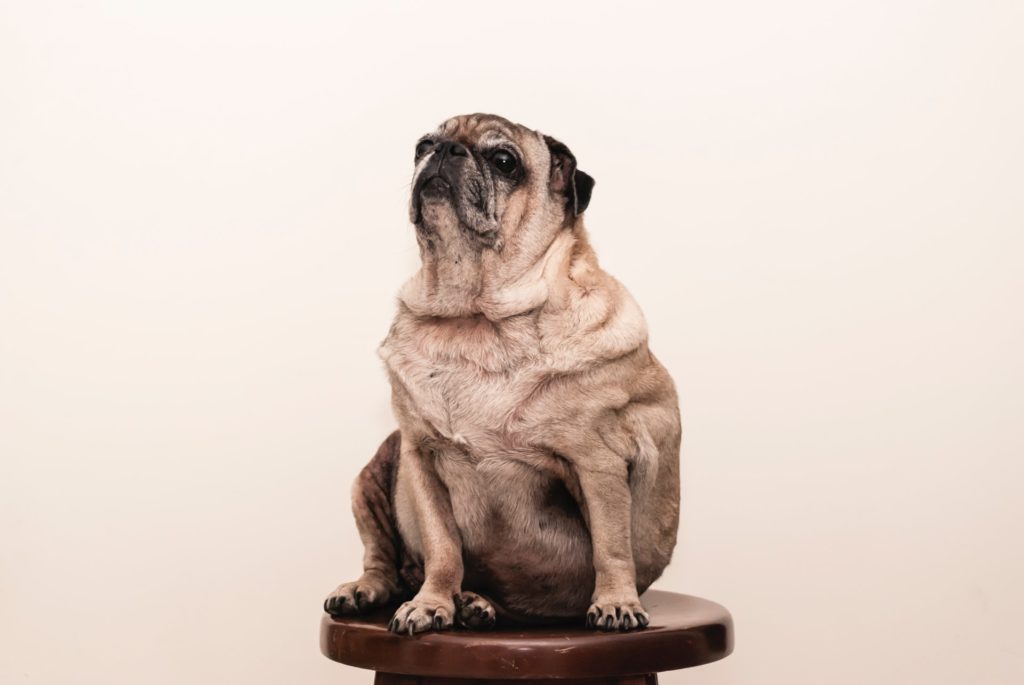A new department for overweight animals has been opened at the Merelbeke veterinary clinic close to Ghent in East Flanders.
The clinic will serve obese cats, dogs and horses who cannot easily lose weight on their own, according to VRT.
“Scientific figures show that half of our cats and dogs are obese,” said Myriam Hesta, professor in Nutrition of Companion Animals (UGent), who opened the new clinic.
A 2018 study of European dog owners also found that “dog owners who did not consider obesity to be a disease were more likely to have obese dogs.”
“Obesity is one of the greatest health challenges of the 21st century and leads to decreased life expectancy,” the study found.
“Among other things, it is associated with cardio-respiratory, orthopaedic, endocrine and oncologic disorders in [both] humans and dogs.”
Hesta says the many snacks and calorie-rich extra treats owners give their pets are often a major culprit in animal obesity.
“It’s important that you give the right food, and especially the right amount. Not too many extras and enough exercise are of course also important,” said Hesta.
Many overweight animals have other underlying conditions, and it’s these issues that often lead to a referral from another vet. Pet owners are also able to contact the obesity clinic directly.
Hesta stressed preventative action when it comes to keeping pets within a healthy weight range.
“If it's really about being overweight, then you have to go to the vet to do something about that - you can't do that on your own,” said Hesta.
“When it comes to prevention, preventing overweight and obesity, of course there are some good tips.”
The most important ones, Hesta stressed, come down to making better choices about the food owners give their animals.
A list of suggestions from De Standaard on keeping your pet’s weight at a healthy level includes taking a critical look at it using a scale, pointing out that many people have an unrealistic idea of what a healthy weight is for a dog or cat and often judge their own pet based solely on appearance, which can be subjective or deceiving.
While cats only eat meat, dogs can be given some vegetables now and then, De Standaard writes: cucumber and carrot are suitable, but onion, tomato and leek are not.
In order to help a dog feel fuller faster, cooked beans can be added to their dry food. For both cats and dogs, diet food and low-calorie options for treats can be found in most stores.
For a special summer treat, small bits of cake can be frozen in an ice cube for a dog to lick. There is also a wide variety of options for puzzle treat balls, which make pets work a bit for their food.
Importantly, plan the day’s food in advance - including the treats. Keep in mind nutritional needs that are specific to your pet’s breed, age and size. Neutered animals need around 30% fewer calories.
Finally, weigh your pet regularly in order to keep track of this vital aspect of their health.

